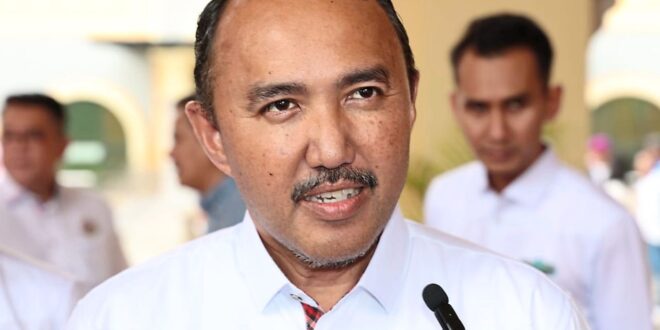Johor government may lean on developers to help redevelop the Taman Ungku Tun Aminah Flats in Skudai, Johor.
State housing and local government committee chairman Datuk Mohd Jafni Md Shukor said this was among suggestions discussed in meetings with residents, Iskandar Puteri City Council (MBIP) and Skudai assemblyman Marina Ibrahim last year.
“This suggestion has so far been well received by residents. The idea is to offer developers the opportunity to redevelop the flats in exchange for the land.
“Unlike the People’s Housing Project (PPR) and Rumah Sewa Kerajaan (RSK), the flats in Taman Ungku Tun Aminah do not come under the government’s purview. It is fully handled by the management committee (MC),” he told StarMetro.
ALSO READ: Flats’ dwellers seek mindset makeover
“We are thinking of suggestions and options for the MC to consider, as it is struggling to maintain the flats since only 40% of residents pay maintenance fees,” he said.
Mohd Jafni said the idea was derived from the successful transformation of the Kampung Kerinchi flats in Kuala Lumpur into a mixed-development project with a mall and premium residential blocks.
“The land at Kampung Kerinchi flats was given to a developer in exchange for a fully funded development.
“Parts of the land were used to develop better quality apartments for original owners of the flats. The new units were given to those owners for free.
“Meanwhile, other parts of the land were used to develop other projects, including a shopping complex and serviced apartments.
“This is a model that we can try to adopt and implement here,” he said, adding that there were a number of challenges that had to be addressed before the plan could be put in motion.
“At least 80% of residents must agree to the plan first. And we need to take into consideration that some of the flats’ owners have died,” said Mohd Jafni.
“This means there are legal issues, including those concerning testate (the deceased left a will), intestacy (without a will) and faraid (Islamic inheritance) laws,” he said.
He noted that attracting developers to take up the offer also presented a challenge as it would not be an easy task for any developer to shoulder.
“The developer must have cash flow and a good track record to carry out the project successfully.
“Not only does the company have to bear the cost of the development, it also needs to pay rent for residents while they are temporarily relocated during the redevelopment phase.
“The developer will also be responsible for finding transit homes for residents during the project construction,” he said, adding that residents might have to live in transit homes for about three years.
Asked if the same plan could be implemented in other old low-cost flats in Johor Baru, Mohd Jafni said it would depend on the location and flats’ surroundings.
“If it is in a prime location in the city, then the state government stands a better chance by offering it to developers as they will want assurance that the project will bring in a good return on investment (ROI),” he said.
Mohd Jafni had said, during a visit to the Taman Ungku Tun Aminah Flats last year, that about 70% of MCs handling low-cost flats in Johor faced difficulties coping with the cost of carrying out maintenance work.
“Most of the MCs are getting maintenance fees from only about 30% of the residents, making it very difficult for them to bear the cost of maintenance and upgrading work.
“I believe this is not just a problem in Johor but is also happening all over the country.
“By right, the management committees can lock up the doors of those who do not pay their fees and even bring them to court,” he said.
He said more than half of the over 100 flats in the Greater Johor Baru area were at least 30 years old, including the Taman Ungku Tun Aminah Flats. — By VENESA DEVI
 BeritaKini.biz Berita Viral Terkini di Malaysia
BeritaKini.biz Berita Viral Terkini di Malaysia





